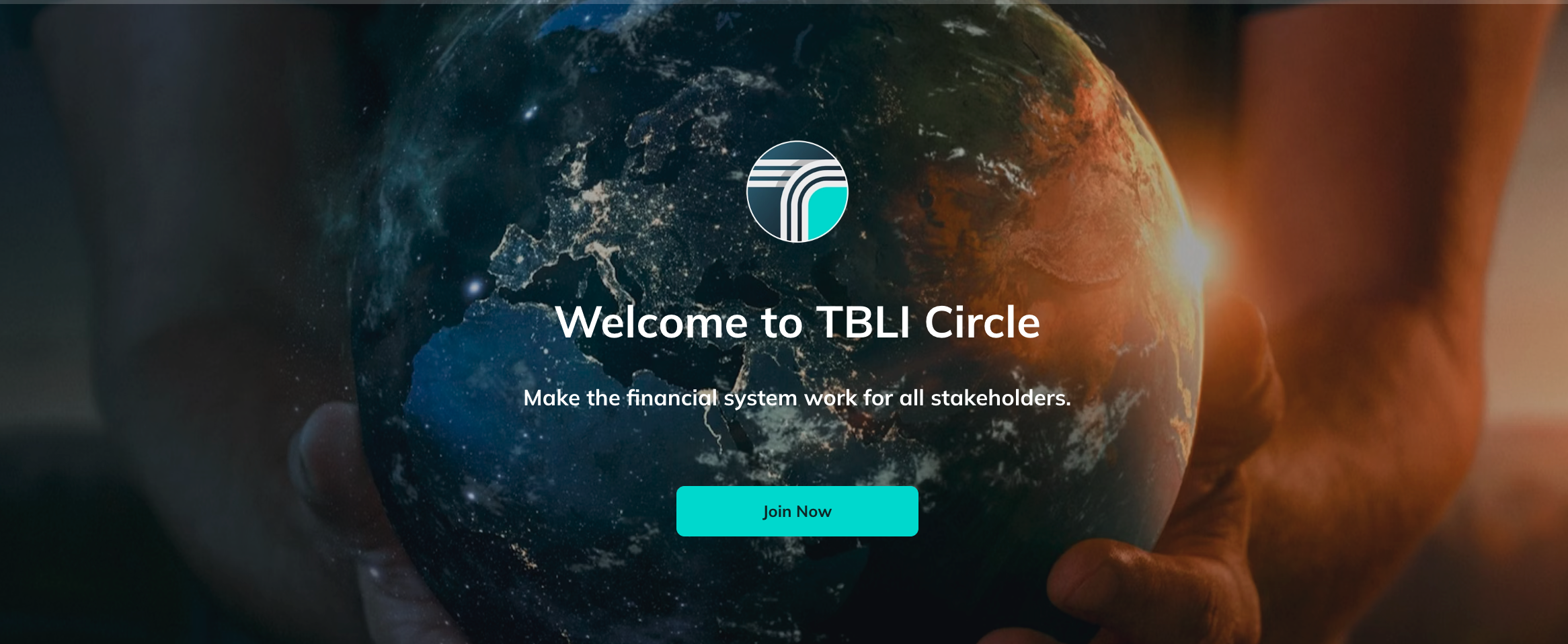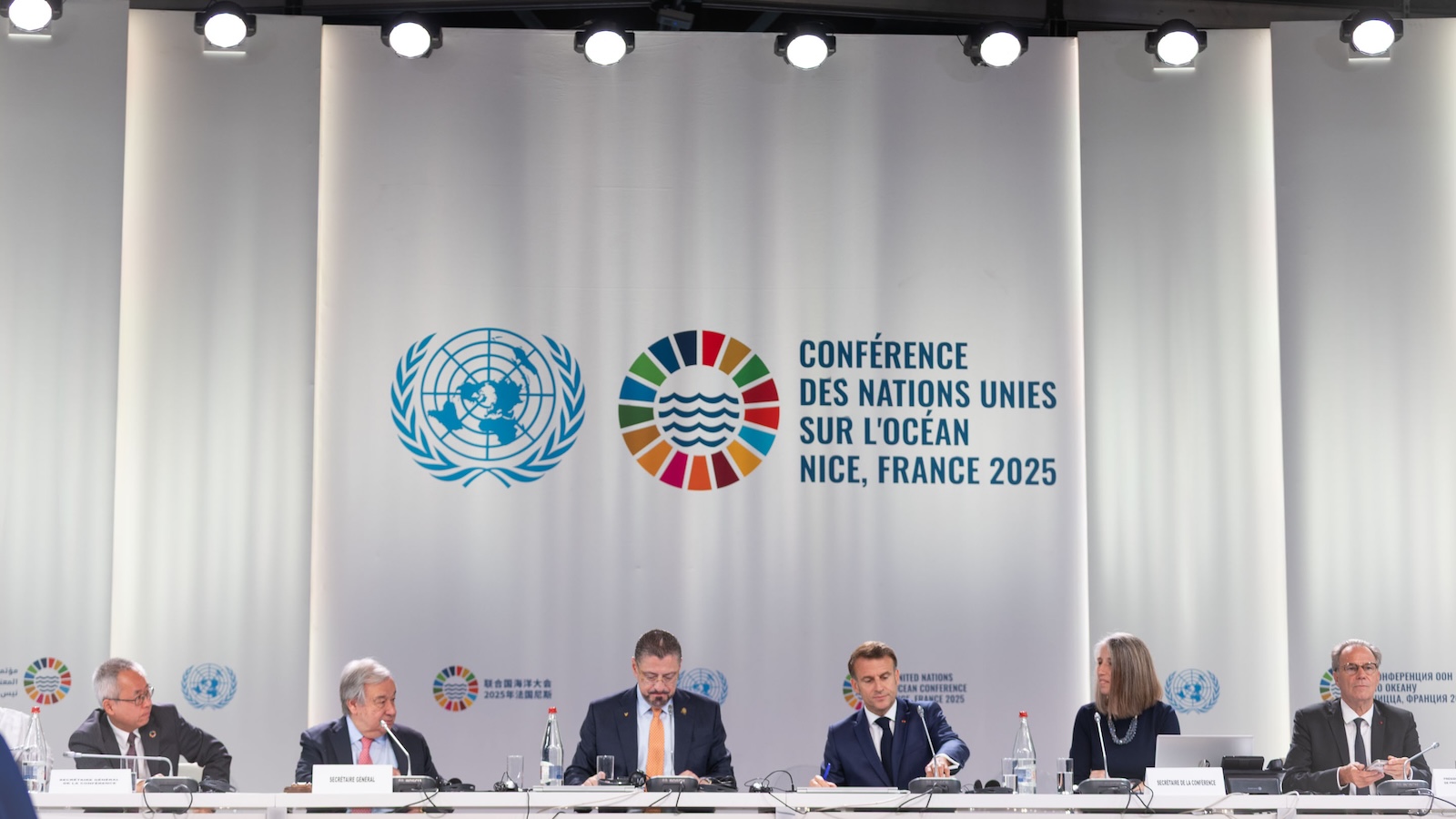
Your weekly guide to Sustainable Investment
Upcoming TBLI Virtual Mixers

Connect with likeminded individuals & grow your network
The TBLI Virtual Mixer (Networking) is where values-led professionals connect — no pitches, no panels, just purpose.
📅 Every last Friday of the month at 16:00 CET
👉 Register here
TBLI Radical Truth Podcast
Beating the Food Desert: How Nilus Makes Healthy Food Affordable in Favelas

Unpacking the tech and logistics behind equitable nutrition access.
Today, we’re joined by Ady Beitler, co-founder and CEO of Nilus, a pioneering social enterprise tackling one of the great injustices of our time: the high cost of being poor.
In this powerful episode, “Beating the Food Desert: How Nilus Makes Healthy Food Affordable in Favelase,” we explore how Nilus is using technology to dismantle inefficient supply chains and give low-income communities access to food and goods at fair prices. By harnessing disintermediation, food rescue, and community group buying, Nilus is rewriting the economics of scarcity, with dignity and scale.
Ady brings a sharp lens to the intersection of logistics, impact, and innovation, backed by a background in finance, years of field experience, and an unshakable belief that systemic inequality can be solved with practical tools and bold ideas.
Liston to the podcast
TBLI Capital Connect

Your Gateway to Mission-Aligned Investors
Why TBLI Capital Connect?
✅ Access to a curated network of high-net-worth investors and venture capitalists
✅ Tailored matchmaking to align you with the right funding partners
✅ Streamlined process to fast-track your fundraising goals
✅ Different tiers of service, offering you the most suitable service according to your budget.
More details here
Would you like to book a call to discuss in detail? click here
Join TBLI Circle and expand your Impact network
Join TBLI Circle — A Community Where Purpose Leads and Impact Grows
If you're tired of extractive networks, shallow conversations, or “impact” in name only, TBLI Circle is your antidote.
This is not just another platform. It’s a curated circle of professionals who believe finance should serve all stakeholders, not just shareholders.
Whether you’re in transition, seeking deeper alignment, or ready to collaborate on work that truly matters, TBLI Circle gives you something rare:
💬 Real relationships.
🌍 Shared values.
🤝 Trusted connections.
⚡ Momentum for your mission.
No ego. No greenwashing. Just people who care.
If you’ve been searching for the right room — this is it.
The Professional Ghosts Among Us:
A Brutally Honest Field Guide to LinkedIn's Energy Vampires

Social skills are experiencing a worse recession than the housing market in 2008. Except instead of toxic mortgages, we have toxic conversations nobody wants to own. "Sorry, your empathy has been downgraded to junk bond status." At least bankers pretended to feel bad about stealing your house.
You know what nobody talks about on LinkedIn? The army of professional phantoms haunting our inboxes like Scrooge's accountant—always asking, never giving, and vanishing faster than your motivation on a Monday morning.
These aren't your garden-variety networking enthusiasts. Oh no. These are the special ones. The extraction artists. The conversational black holes who've turned relationship-building into a one-way ATM transaction where you're always the bank and they're always making withdrawals.
The Anatomy of a Professional Ghost
Let me paint you a picture. You know this person. Hell, you probably are this person (in which case, congratulations on your self-awareness and please keep reading).
They slide into your DMs with the social grace of a bulldozer at a tea party: "Hey! Hope you're well! Quick question..." And you already know what's coming. It's never actually quick, and it's rarely a question—it's a thinly veiled request for your time, expertise, connections, or soul.
They want introductions to your contacts. They need you to review their business plan. Could you possibly mentor them for free? Would you mind hopping on a call to "pick your brain"? (As if brains were seasonal fruit ripe for the picking.)
And here's the beautiful part: when you actually help them—because you're a decent human being who believes in karma and professional courtesy—what happens next?
Crickets.
Not a thank you. Not an update. Not even a "go fuck yourself." Just pure, crystalline silence. They've gotten what they needed and evaporated like your patience during a two-hour Zoom call about "synergies."
The Great Reciprocity Myth
Now, these extraction experts will tell you they believe in reciprocity. They'll say, "Of course, anything I can do to help you!" with the enthusiasm of someone offering to help you move—knowing full well you live in a penthouse apartment.
But when you actually need something? When you reach out for that favor? Suddenly they're busier than a one-legged cat in a sandbox. They're "swamped," they're "between opportunities," they're "focusing on family right now."
Translation: "I got mine, good luck getting yours."
It's like they've weaponized networking. They've turned relationship-building into a smash-and-grab operation. Get in, extract value, get out, move on to the next mark. It's LinkedIn as a strip mine.
The Social Skills Shortage
Here's what kills me: these people think they're networking. They think they're building relationships. They've confused transaction with connection, extraction with engagement.
Real networking? That's when you actually give a damn about the other person. When you remember their kids' names, check in when they get promoted, share their content because you actually read it and thought it was valuable.
These ghosts treat networking like a vending machine. Insert coin (fake pleasantries), select product (your expertise/connections), collect item (what they need), walk away. No relationship, no connection, no humanity.
They've turned the art of human connection into a spreadsheet formula: Input request + Minimal effort + Zero follow-up = Maximum extraction.
Read full article
ECB Sets Goal to Reduce Emissions of €331 Billion Corporate Bond Portfolio by 7% Per Year

The European Central Bank (ECB) announced the publication of a new set of climate-related financial disclosures, providing information on the carbon footprint of its portfolios and their exposure to climate risks, indicating that the carbon intensity of its €331 billion (USD$380 million) corporate bond portfolio has declined by 38% from 2021 to 2024.
Alongside the disclosures, the ECB revealed that it has set a new climate goal for its corporate portfolio holdings in the asset purchase programme (APP) and the pandemic emergency purchase programme (PEPP), targeting an emissions intensity reduction of 7% on average per year.
According to the ECB, the new target is aimed at keeping its holdings on a path that supports the goals of the Paris Agreement and EU climate neutrality objectives.
The report marks the third set of climate-related disclosures from the ECB, following the central bank’s launch in 2021 of its climate action plan, which included a pledge to increase climate-related transparency, as well as initiatives to further incorporate climate change considerations into its monetary policy framework, to enhance its risk assessment tools and capabilities to better include climate-related risks, and to improve the external assessment of climate risks.
The ECB also announced in 2022 that it would begin incorporating climate change considerations into its monetary policy framework, with actions including the decarbonization of its portfolio of corporate bond holdings over time, and the introduction of climate-related disclosure requirements for collateral.
According to the report, the carbon footprint of the Eurosystem corporate bond portfolio has declined significantly over the past few years, with weighted average carbon intensity (WACI) falling 38% to 165 tCO₂e/EUR million in 2024 from 266 tCO₂e/EUR million in 2021.
While the ECB’s initiative to tilt investments to better climate performers contributed significantly to its reduced portfolio carbon footprint, these actions accounted for around 26% of the WACI reduction through 2024, with emissions reductions at issuers accounting for most of the decline. Tilting also slowed significantly following and ECB decision to discontinue reinvestment, although the central bank noted that the scope 1 and 2 WACI of purchases conducted in 2024 declined by 76% compared with the year prior to the implementation of the tilting framework.
The ECB also announced the introduction of a new metric, measuring the exposure of the ECB’s and the Eurosystem’s corporate portfolios to sectors with material dependencies or impacts on nature. According to the new metric, approximately 30% of the Eurosystem’s monetary policy corporate bond holdings are concentrated in the three most exposed sectors, including utilities, food and real estate.
In the new report, ECB President Christine Lagarde said:
“Building strategic resilience and tackling climate change go hand in hand – and the future of Europe and the rest of the world crucially hinges on the success of our collective effort to reduce carbon emissions.
“At the ECB, we take climate change into account when pursuing our mandate. To meet our primary objective of keeping prices stable, we need to understand how climate change, nature degradation and the green transition affect the economy, and to manage the accompanying risks.”
Source
The historic high seas treaty is not yet in effect — but countries drew closer to implementing it.
Delegates from around the world convened in Nice, France, last week to discuss a range of ocean priorities, including the implementation of a recently finalized “high seas treaty” to protect the two-thirds of the oceans that lie outside countries’ control.
It was the third United Nations Ocean Conference, a high-level forum meant to advance the U.N.’s sustainable development goal to “conserve and sustainably use the oceans.” This year’s co-hosts, France and Costa Rica, urged other countries to step up marine conservation efforts in light of overlapping ocean crises, from plastic pollution and ocean acidification to rising sea levels that are jeopardizing small island nations. António Guterres, the U.N.’s secretary-general, said in his opening remarks that oceans are “the ultimate shared resource” and that they should foster multilateral cooperation.
Whether the conference was a success depends on whom you ask. The most prominent outcome of the meeting was a flurry of voluntary and rhetorical commitments made by countries to conserve marine resources. Some of these, like France’s pledge to limit a destructive kind of fishing called bottom trawling, were criticized as insufficient. France had also promoted the conference as a sort of deadline for reaching 60 ratifications of the high seas treaty — a threshold needed for it to enter into force — but this didn’t happen, leading to disappointment among ocean advocates
On the other hand, experts said there were real signs of progress. Germany and the European Union pledged hundreds of millions of dollars toward marine conservation, for example, and 11 governments signed a new pledge to safeguard coral reefs. Nearly 20 countries ratified the high seas treaty over just a few days, bringing the total up to 50.
Angelique Pouponneau, the lead ocean negotiator for the Alliance of Small Island States, a negotiating bloc of 39 countries, said in a statement that the conference had been “a moment of both progress and reflection.” Former U.S. secretary of state John Kerry, who also served as special envoy on climate under the Biden administration, noted “critical momentum to safeguard our planet.”
The biggest focus of the U.N. Ocean Conference was the high seas treaty, also known as the agreement on biodiversity beyond national jurisdictions. Adopted by U.N. member states in 2023 after more than 20 years of negotiations, the treaty aims to solve a longstanding problem in marine protection: how to safeguard parts of the ocean that lie outside countries’ “exclusive economic zones,” swaths of water that stretch about 200 nautical miles beyond their coastlines. As of now, countries can unilaterally create marine protected areas within their economic zones. They usually restrict resource extraction and industrial fishing in these areas, often with exceptions for small-scale fishers. Many countries have established such zones, but they need the high seas treaty to create a legal framework for doing the same thing in more distant waters.
France had made it a priority to reach 60 ratifications of the high seas treaty either before or during the third Ocean Conference; doing so would kick off a 120-day countdown for the agreement to enter into force. Not enough countries signed on, though the conference did seem to accelerate the ratification process: At a special event on the conference’s first day, 18 countries announced their ratification, including several small coastal states like Ivory Coast and Vanuatu, bringing the total to 50 (including the European Union, which has ratified it as a bloc). Each country has its own laws and processes for ratifying treaties; upon ratification, it formally lets the U.N. know and agrees to be bound by the terms of the relevant treaty.
France’s special envoy to the talks, Olivier Poivre d’Arvor, wrote on LinkedIn that he expects the remaining ratifications by the next U.N. General Assembly meeting this September. That would still be pretty fast, compared to other multilateral environmental agreements. The U.N. Convention on the Law of the Sea, for example — the world’s main legal framework for regulating maritime activities like shipping and fishing, and for establishing countries’ exclusive economic zones —— took eight years to reach 60 ratifications. Only a few agreements, like the Paris Agreement to address global warming, were ratified faster.
Rebecca Hubbard, director of a coalition of environmental nonprofits advocating for the high seas treaty called High Seas Alliance, said in a statement that the world was “within striking distance” of the 60th ratification. “The treaty’s entry into force could be triggered in a matter of weeks,” she said.
Several experts Grist spoke with said marine protected areas are essential for advancing the U.N. target to protect 30 percent of Earth’s land and water by 2030. Robert Blasiak, an associate professor of sustainable ocean stewardship at Stockholm University’s Stockholm Resilience Center, estimated that without a high seas treaty, countries would have to designate some 90 percent of their waters as marine protected areas — an unlikely scenario. French Polynesia, however, made a splash at the Ocean Conference by declaring the entirety of its exclusive economic zone — all 1.9 million square miles of it — a marine protected area, making it the largest in the world.
Read full article
Female entrepreneurs have an advantage when it comes to funding social enterprises, new Northeastern research finds

Assistant professor Zhenyu Liao has studied inequality in business and has found that women possess a certain edge in some scenarios.
Northeastern University assistant management and organizational development professor Zhenyu Liao’s research has shown that female entrepreneurs face disadvantages when it comes to getting venture funding.
But the latest paper from the Thomas E. Moore Faculty Fellow and his coauthors shows that female founders have a unique advantage when it comes to getting funding for social enterprises.
“We tend to have this understanding (of) gender inequality … that sometimes men have more benefits,” Liao said. “What we found here is women raise more significant amounts of money for their social entrepreneur efforts.”
The research, published in Organizational Behavior and Human Decision Processes, looked at archival data on social entrepreneur projects from crowdfunding sites like Kickstarter and Indiegogo. The researchers looked at the relationship between funding and the gender of the entrepreneur and found that women got a “significantly higher amount of funding,” Liao said.
But, Liao added, this data only shows the what and not the why, so the researchers conducted an experiment where they presented investors with potential investments to see which ones they would invest in.
“Ultimately, we found women tend to be perceived as having a higher pro-social motivation,” Liao said. “Those kinds of higher social motivations will translate it into stronger confidence among those investors that those women entrepreneurs are more likely to commit to those social goals in their social, entrepreneurial projects.”
The researchers look specifically at social enterprises and entrepreneurs because of the challenges they often face when balancing their mission with turning a profit. These are businesses that focus on addressing concerns around social justice issues like the environment or racial and gender inequality, Liao said.
“Whenever we talk about entrepreneur activities, people primarily focus on profits, on the financial success,” he added. “Social entrepreneurs actually have dual roles. They initially started with social welfare goals … (and) they want to make sure those social entrepreneur projects can function well, so they also have to maintain their financial stability.”
But often what happens is what Liao described as “mission drift” where these social enterprises lose sight of their original mission in order to achieve financial success, and studies show some of the goals of these social enterprises aren’t met in favor of financial goals, posing a problem for investors.
“When investors are trying to make a decision, the huge concern for them is whether social entrepreneurs can continue to stay committed to those social goals,” Liao said. “Because sometimes when we grow, we face huge financial challenges … sometimes they just prioritize the financial goal.”
But this latest research shows that investors view women entrepreneurs as having more motivation to achieve these social goals and as less likely to prioritize them over financial achievements.
“Women entrepreneurs have some unique advantages in certain domains,” Liao said. “These can be really powerful. (I hope this paper) shines a hopeful light on this.”
Source
Noise pollution harms health of millions across Europe, report finds

About 110 million people suffer stress and sleep disturbance that lead to tens of thousands of early deaths

